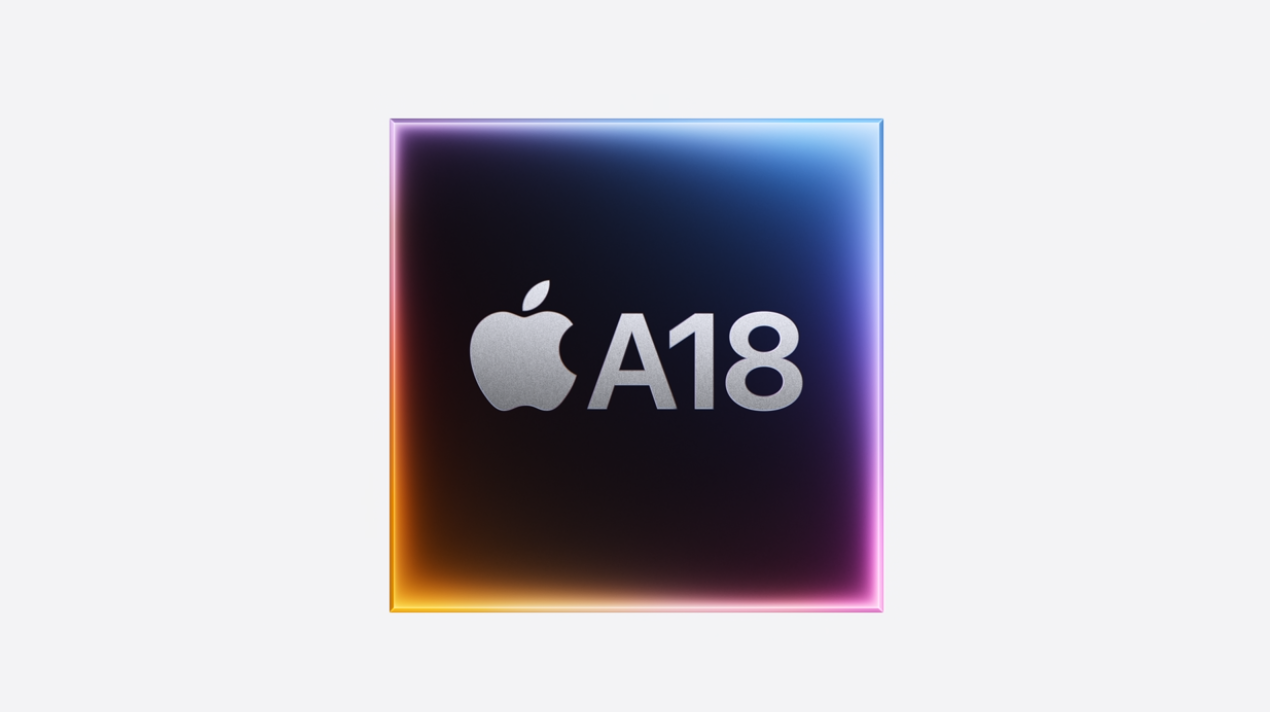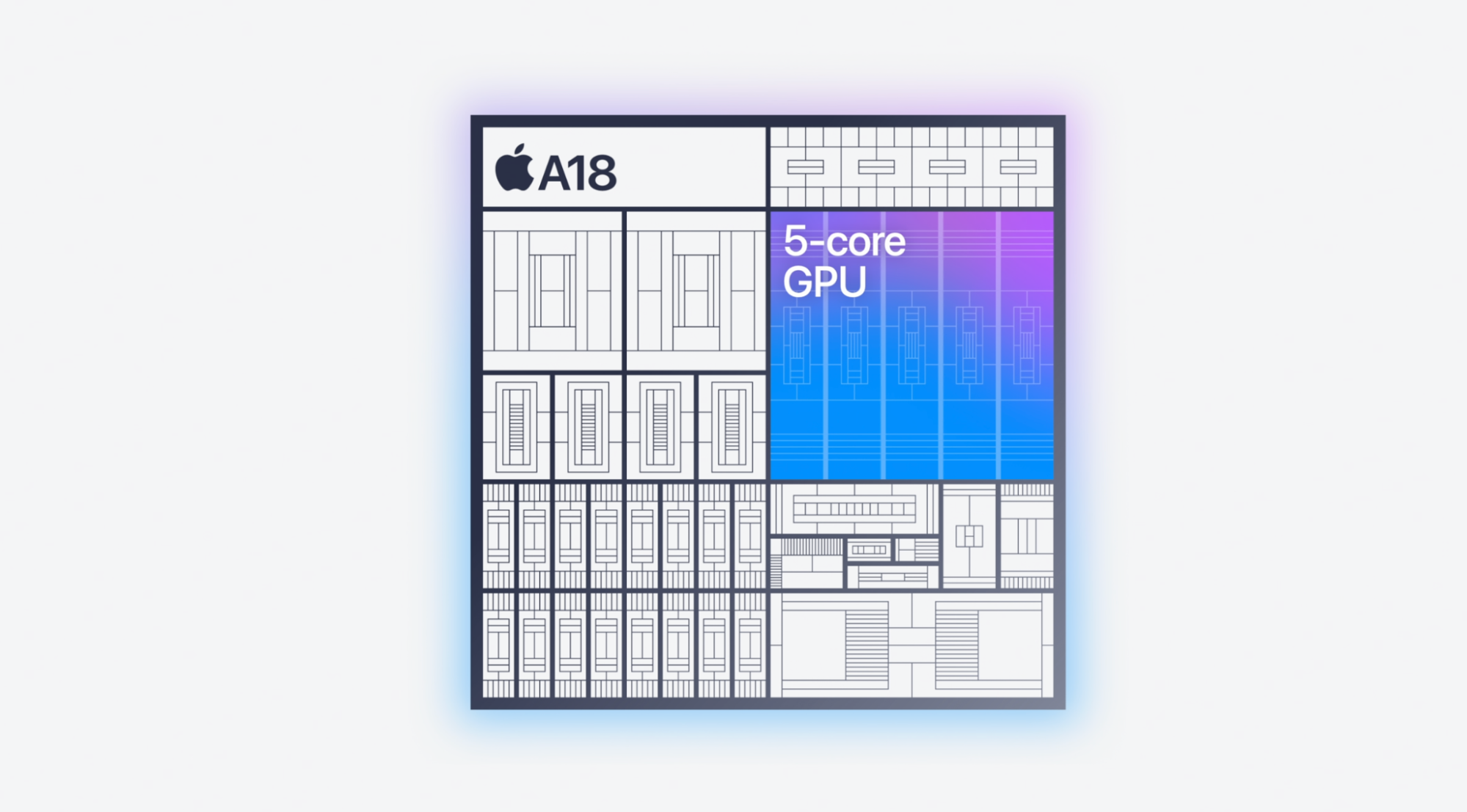
Apple's next iPhone chip is the A18, powering the new suite of smartphones and Apple's first lineup touting Apple Intelligence features, created specifically for the iPhone 16.
The new chip, based on TSMC's second-gen 3-nanometer technology, combines two performance cores, four efficiency cores, and a 16-core neural engine, which Apple says is twice as fast as previous chips for machine learning. It also boasts 17% more system memory bandwidth.
Apple compared the chip to the A16 Bionic, the chip in the previous non-Pro iPhones, as opposed to the A17 Pro. Apple says the new chip is 30% faster than the A16 Bionic.

Apple says that the new 5-core GPU in the A18 is up to 40 percent faster than the GPU used in the A16 Bionic (used in the iPhone 15). This “desktop class” GPU also performs this feat while using 35% less power.

The company said that Apple can allow for 30% higher sustained performance for gaming than previous versions. The company showed illustrations of optimized motherboards and thermal substructures to allow for better heat dissipation.
For gaming, the company again touted hardware-based ray tracing, including shadows and reflections, and shows Honor of Kings: World with an ultra graphics mode for iPhone 16. Some big games that required the iPhone 15 Pro's A17 Pro chip will work on the regular iPhone with A18.


The iPhone 16's biggest addition outside of Apple Intelligence feature is the Camera Capture button, which can add overlays that let you zoom, switch lenses, and use other options with haptic feedback. It can also work with Intelligence features to recognize objects and locations, add concert posters to your calendar, and send photos to ChatGPT.
iPhone 16 will start at $799, while the larger iPhone 16 Plus will begin at $899.
A18 Pro

Like the IPhone 16, the iPhone 16 Pro and Pro Max are get a the A18 Pro. It's also on a second-gen TSMC 3nm node. The system has a 16-core neural engine capable of 35 trillion operations per second and a 17% bump in memory bandwidth.





Like the A18, the A18 Pro has two performance cores and four efficiency cores. Apple claims this chip is 15% faster than the A17 Pro, and that it can deliver the same performance at 20% less power. Apple is also promising programmable next-gen machine learning accelerators, faster USB3 speeds and ProRes video recording. You can now capture 4K 120Hz video in HDR.

iPhone 16 Pro will start at $999 (128GB), while the Pro Max will begin at $1,199 (256GB). Pre-orders begin on Friday and will be available on September 20.







